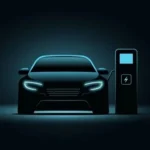Don’t know what a lithium-ion battery is? Well, you probably have one on hand right this second. Really? Well, you see, you must be using some sort of device to read this very post, and the device you are using probably has a lithium-ion battery in it, and that’s how it is running. Literally, from electric automobiles to the tiniest gadgets we use like earbuds or wristwatches, all of them have lithium-ion batteries as the main power sources. To put it in the simplest words possible, a Lithium ion short for Li-ion battery is a recharged power source that uses something called reversible intercalation of Li⁺ ions to store the charge or energy. And this is the energy that later can be used to power a device, an electric vehicle or anything like that. If you still didn’t get it, let us fill you in: Lithium-ion batteries are able to store energy because they repeatedly move lithium ions between a negative electrode and a positive one. Just know that, and you’ll be good for the most part. Alright, enough of the introduction and definition stuff, now let’s get to the pros and cons of lithium-ion batteries to understand this whole thing in a much better way. Alright, here we go now.

Advantages of Lithium-Ion Batteries
1. High Energy Density
Do you know how jam-packed these lithium-ion batteries are with energy or charge? Unlike any other cell battery out there, lithium-ion batteries can hold the most amount of energy, and that’s the very reason why these types of batteries are the most used ones. From your smartphone to electric cars, they are ideal for everything since their high energy density fits a great volume of power into a compact, light package, you know? See, these are the batteries that can power your smartphone for several hours, and you don’t have to worry about charging your phone or device again and again every hour or so. That’s just the magic of Li-ion batteries right there.
2. Low Self-Discharge
It’s amazing how lithium-ion batteries don’t simply abandon you by losing charge when you need it the most, you know? These batteries are designed in a way to hold the power far longer than their other counterparts or alternative cell battery options like nickel-cadmium or nickel-metal hydride batteries. This simply means that you don’t even need to worry about whether the device you charged a month ago will be working even today, like that emergency torch that has a Li-ion battery.
3. Quick Charging
And what’s the case when it comes to charging these batteries again and again? Well, the process is super fast, and it is not like you have to wait for hours and hours just to get a single small battery charged. They charge up so quickly, almost as eager as you are to start moving once more. Talk about a time-saver: modern tech with these batteries can attain 50% charge in only a few minutes!
4. No Memory Effect
See, with other types of batteries, if you want to maintain a healthy battery life, you’d have to discharge them completely, and then recharge again. But that’s not the case with Li-ion batteries. Feel free to charge them anytime it would be handy as they do not suffer from that unpleasant memory effect, you know?
5. Long Lifespan
Lithium-ion batteries play the long game rather than only provide instantaneous benefits, that’s for sure. Unlike other battery options, lithium-ion batteries are actually the most durable ones and can work for years without causing battery life problems. And this is the very reason why Li-ion batteries are a very good option if you want a power source for a device for the long term.
6. Lightweight and Compact
And one thing you’ll agree on with us is that these lithium-ion batteries are really super compact and very lightweight. And that’s the very reason why we can have them in our tiniest gadgets without worrying too much about the size as well as the weight of the gadget. And the same goes for the modern electric cars that are running on the roads today.
Disadvantages of Lithium-Ion Batteries
1. High Cost
Alright, let’s start with money. Though they are all very advanced, lithium-ion batteries have a high cost. How exactly? Though components like lithium and cobalt are not cheap, the engineering required to create safe and efficient batteries adds up and makes them rather a luxury.
2. Aging and Limited Lifespan
It is not like these lithium-ion batteries will last until the end of our universe, that’s not how it goes. Just like anything else in life, sure, these Li-ion batteries also have a lifespan, though longer than some other battery alternatives. They age and lose their thing (you know, their ability to hold charge or energy), so finally they cannot retain as much charge and must be replaced.
3. Safety Concerns
Sure, Li-ion batteries are super useful, durable, and can hold substantial amounts of energy, but that doesn’t mean that these batteries are the safest options out there. You may have seen plenty of times in the headlines that some smartphone, electric bike, laptop or anything containing a lithium-ion battery caught fire or straight up exploded, right? Well, that’s how it is. Should they be broken or misused, they could catch fire or overheat.
4. Eco-Unfriendly
Let us discuss green, or more precisely not so green, you know? From raw material extraction to energy-intensive manufacturing techniques, the manufacturing process of lithium-ion batteries has major environmental effects. Another environmental mess is the disposal of these batteries since their components are not quite friendly for the earth.
5. Temperature Sensitivity
With temperature, lithium-ion batteries are somewhat unreliable. How exactly? Well, too chilly they operate poorly, too hot they disintegrate more quickly. So, yes, you can’t just fully rely on these types of batteries in extreme weather conditions, and that’s how it is for now.
Comparison Table for Advantages and Disadvantages of Lithium Ion Battery
| Advantages | Disadvantages |
| High energy storage in a compact form | Expensive due to material costs |
| Retains charge over time | Degrades over time and with heat |
| Fast recharging capability | Risk of overheating or fire |
| No need to fully discharge before use | Environmental impact of production |
| Long-lasting | Sensitive to extreme temperatures |
| Lightweight and space-efficient |

